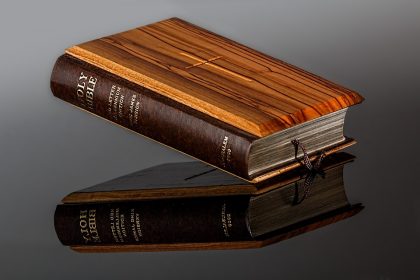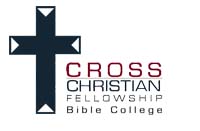
Your word is a lamp for my feet, a light on my path—Psalm 119:105
A long-time friend recently wrote me with some excitement that she had purchased her first study Bible. This surprised me, since she is solid Christian who holds a degree from an evangelical seminary. There are many ways to grow in our knowledge of God through the Bible, but I have found that a biblically-based study Bible is one of the best.
Christians should not only read but also study the Bible. Studying requires focused attention on what the books of the Bible reveal. One learns to follow the logic and narrative of a book’s presentation, determine what genre of literature is used by the writer, know the cultural background of the book, how one passage relates to other passages, and more. While there is a vast literature of books—academic and popular—written for a better understanding of Holy Scripture, the genre of a Study Bible offers the ardent Christian meaty resources for greater knowledge of “the living and active” Word of God (Hebrews 4:12; 2 Timothy 3:15-17).
A study Bible contains the entire text of Scripture in one of many translations. To further understanding, it adds introductions to the books of the Bible, cross references, outlines of books, study notes, maps, diagrams, special essays on various topics, indexes, and more. (A study Bible differs from a Bible commentary in that the latter does not include the entire text of Scripture. It, rather, refers to and quotes from Biblical passages for the sake of the commentary.) The number of Study Bibles has multiplied in recent decades. Which ones are worth studying? Consider five basic principles.
First, one should use a Study Bible with a solid translation. Evangelicals scholars generally endorse The New International Version, The New American Standard Bible, The English Standard Bible, and (with some caveats), the King James Bible and the New King James Bible. A translation should be distinguished from a paraphrase, such as The Living Bible, The New Living Bible, or The Message. These works, while helpful in some cases, are not the texts from which one should study the Bible in earnest.
Second, Study Bibles worth studying are prepared by scholars worth reading. Most Study Bibles are prepared a team of scholars, who are listed near the front of the Bible. Scholars, who teach Evangelical institutions, such as Denver Seminary, Gordon-Conwell Theological Seminary, Westminster Theological Seminary, Covenant Theological Seminary, Trinity Evangelical Divinity School, Talbot School of Theology, and others, are to be preferred. However, there are some solid biblical scholars who teach at more liberal institutions.
Other study Bibles are prepared by single authors, such as The MacArthur Study Bible (John MacArthur) or The Ryrie Study Bible (Charles Ryrie). When one man takes on one book as large, diverse, and consequential as the Holy Bible, he faces a daunting task. Nevertheless, it can be done well by some scholars, including the two mentioned just mentioned. On the other hand, The Scofield Reference Bible (C.I. Scofield, first published in 1909), while historically significant as the first American study Bible, was prepared by a man who never attended seminary. Much of the scholarship is out of date as well.
Third, the typesetting should be readable. As I get older, I am frustrated by how small the commentary text is in some study Bibles. If you strain to read some of the study material, then you are not likely to study it.
Fourth, while all study Bibles share common features—such as commentary, outlines, and introductions—they differ in the tools they offer and the perspective or emphasis they proffer. The emphasis may be obvious, as with The Archaeology Study Bible or The Apologetics Study Bible. The titles of some study Bibles give away their perspective, such as The Reformation Study Bible or The Spirit-Filled Study Bible (charismatic).
Fifth, some study Bibles are sparse on academic material, but are devotional in focus. The Bible itself is both intellectual gripping and devotionally rich, and a good study Bible should recognize this. However, do not expect much theological reflection or exegetical rigor in something like The Inspirational Study Bible by Pastor Max Lucado, whatever merits it may have, since it offers little to actually study.
For those who are zealous for examining the Bible in detail, learning its truths, making them known to the world, and applying them to live, consider several study Bibles.
General, multi-scholar works
- The NIV Study Bible. I have used this work more than any other. It was first published in 1985, and I have consulted it ever since. The study tools are robust and the scholars well-qualified. It was recently updated.
- The Zondervan NIV Study Bible. This features the most recent evangelical scholarship by leading scholars. It goes into more depth than The NIV Study Bible.
- The ESV Study Bible. An able work by conservative biblical scholars using the English Standard Version.
Single author works:
- The Ryrie Study Bible. Prepared by a long-time professor at Dallas Theological Seminary, it is Dispensational in focus, but much more supplicated and academic than the much earlier Dispensational work, TheScofield Reference Bible.
- The MacArthur Study Bible. Pastor John MacArthur has been teaching, preaching, and writing for over forty years. He is known for his strong—and sometimes controversial—stands on doctrine and for careful biblical preaching.
Special Emphasis Bibles
- The Reformation Study Bible. Reformed theology informs this work, which features excellent commentary and short essays on theological topics.
- The Apologetics Study Bible. The overarching theme is the rational defense of the Christian faith. Its notes and essays will equip the reader to defend the biblical worldview.
- The Spirit-Filled Bible. Written from a charismatic perspective. I find its short inserts on key biblical words particularly helpful.
- Walter Martin’s Cult Reference Bible. This out of print work, edited by the father of the evangelical counter-cult movement, brings together writers knowledgeable about cultic doctrine in relation to historic Christian orthodoxy. However, noble the goal and able the writers, the volume lacks adequate commentary and study helps.
Study Bibles Outside of Evangelicalism
- The Jewish Study Bible. While not Christian in orientation, this study of the Hebrew Bible (or Old Testament) is helpful in better understanding the Jewish mind about their sacred text.
- The Orthodox Study Bible. This underscores the relation of the Bible to Orthodoxy’s deep liturgy and its sacred tradition. One will find less material on biblical languages and exegesis than in the other study Bibles mentioned here.
- The Catholic Study Bible. Like Orthodoxy, Catholicism emphasizes church tradition more than Protestants (who affirm sola scriptura) and differs from it in key doctrines. Nevertheless, its contributors are able academically.
Study Bibles abound, and I have not mentioned all of them. Nevertheless, the principles and comments in this essay should help chart the way to learn more about Scripture through this method of study.
SEE ORIGINAL POST HERE

